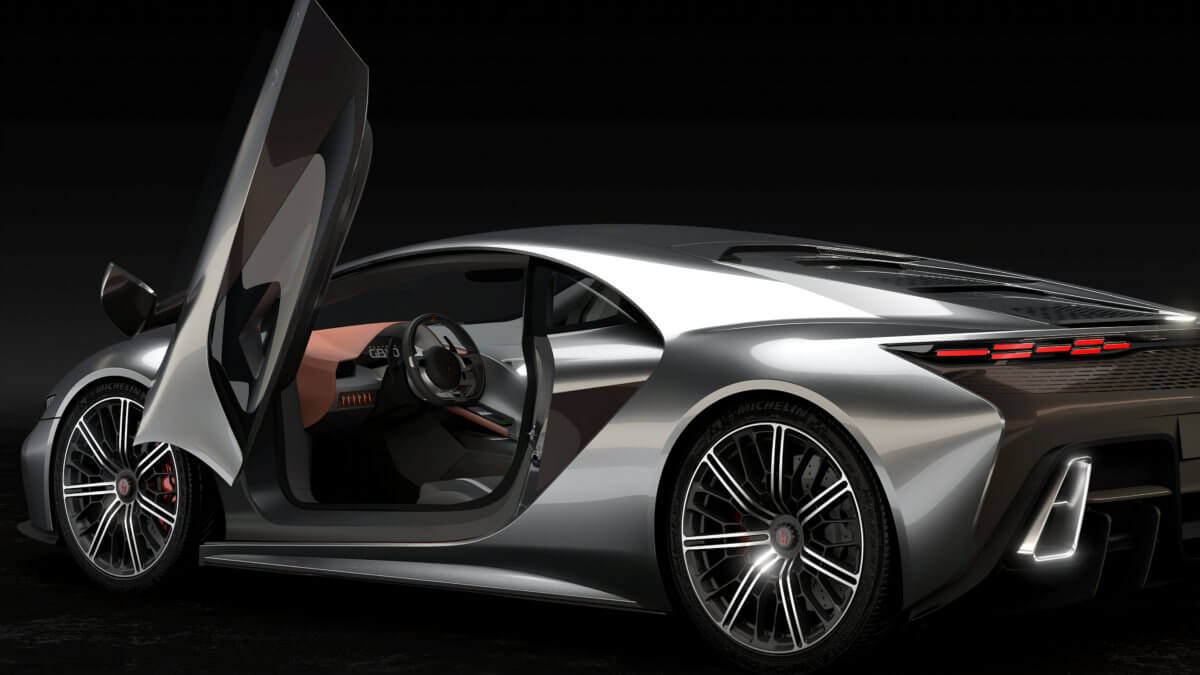TURIN, Italy — Italian automative company Bertone is developing a hypercar — that will run on garbage. The GB110 is the first high-performance car that will be supplied with fuel made out of plastic waste.
The limited edition run of 33 vehicles has been launched to mark Bertone’s 110th anniversary. They are known for iconic designs such as the sharply angled “Italian Wedge” shape of the Lamborghini Countach.
Bertone hasn’t released a price tag for the car, but say it will be “akin to a piece of art,” and allows potential owners to choose a series of modifications to suit “unique tastes and identity.”
Jean-Franck Ricci, CEO of Bertone, says in a statement that they “have partnered with the company Select Fuel which has developed a patented technology to convert polycarbonate materials into renewable fuel. We believe that de-pollution will require different solutions with combinations of technologies. Plastic waste needs to be treated as a valuable resource. Through our partnership with Select Fuel we take what was once waste and convert it back into its original form.”
Boasting 1100hp, the GB110 is claimed to do 0-100 kph in 2.79s, with a maximum speed “over 380 kph” (or 236 mph).

A company statement reveals the marque has been lying dormant in recent years, but is being revived and reinvented by new owners Mauro and Jean-Franck Ricci.
Project and design manager Giovanni Sapio explains: “The GB110 is continuing Bertone’s automotive legacy and is a contemporary interpretation of the Bertone DNA. It’s paying homage to pioneering Bertone designs from the 50’s and 70’s, merging the soft, rounded lines of the 50s with 70’s style sharp edges.”
Adds Select Fuel: “We recognize that plastic waste is a major environmental problem. We have committed to developing technologies that convert polycarbonate materials into renewable and sustainable fuels. With our cutting-edge Advanced Plastics to Fuel Technology, Select Fuel products can be used in many different applications. Our fuels are used in everything from the transportation industry and renewable aviation fuel to motorsport and high-end sports cars including the Bertone GB110.”

Report by South West News Service writer Dean Murray

So much for equity. LOL
If you own one in Naples, you’ll never run out of free fuel.
How many miles per gallon of travel? Amazing how such an important environmental consideration is eclipsed for melting milk jugs…
So it’s going to be priced “akin to a piece of art,” and runs on “special” fuel that you can’t get at your regular gas station? It’ll be a large and expensive paperweight in six months when the fuel company goes upside down. PASS.
who would hate their life so much as to drive 236 miles per hour?
Who’s gonna process the garbage?
Too bad we can’t use this fuel in usa
I bet it requires a petroleum-base liquid thats added to break down the plastics, so we are not any further from “getting off of oil”!
Plastic waste is a real concern, more so than the climate change theory….I’m glad someone is looking to do something with plastic waste, but how much does the fuel cost per gallon, and how much energy are you getting vs the energy it takes to produce the fuel?
Who cares about some damm car that very few people will buy? Let’s hear about turning plastic into fuel! Will it cost more than gasoline made from crude oil? Why is this fuel necessary for this car? Can the new fuel be used in traditional IC engines?
Yes, it will cost more than refining oil. Scavenging carbonates from refuse is not easily automated. Reprocessing recycled polycarbonates does not consider the origin of the polycarbonates, and subsequent collection of the product. Still, it is worthwhile. The polycarbonates we produce are chemically stable and do not readily degrade naturally.
It is better to consume them and covert them to CO2 and H2O than leave them as refuse.
The economics will change through depletion of economical oil reserves.
Lots of questions, These people are doing positive for people,you fools.
230 MPH or not, I’d still be late for work and blame it on a Prius.